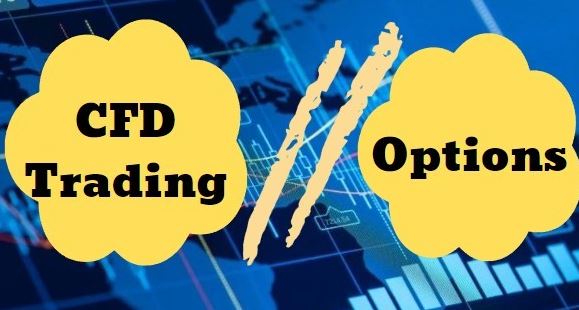The world of financial instruments can be a labyrinth, and for traders, two paths often cross: options and Contracts for Difference (CFDs). While both offer avenues for profit, their functionalities diverge significantly. Understanding these distinctions is paramount for navigating the ever-evolving trading landscape of 2024.
Options: Rights, Not Rings
Imagine options as permission slips for the financial market. They grant you the right, but not the obligation, to buy or sell an underlying asset at a predetermined price by a specific date. Think of it like reserving a stock at a specific cost, with the flexibility to walk away if the market takes an unexpected turn. There are two sides to this coin: call options for buying and put options for selling. Options are often used for strategic maneuvers like hedging existing holdings or speculating on future price movements.

CFDs: Contracts for Price Movements
CFDs, on the other hand, are more akin to agreements with a broker. You essentially speculate on the price difference of an asset between entering and exiting the contract. Unlike options, CFDs encompass a wider range of assets, from stocks and commodities to the ever-evolving realm of cryptocurrencies.
A Tale of Two Eras
Options boast a rich history, tracing their roots back to ancient Greece. In contrast, CFDs are a millennial invention, emerging in the London financial district during the 1990s. This age gap is reflected in their market structures and regulations.
Mechanics: Complexity vs. Simplicity
When you acquire an option, you’re essentially buying a contract. This can involve intricate strategies with terms like straddles and spreads. CFDs, however, are designed for straightforwardness. Your profit or loss hinges solely on the price differential of the underlying asset.
Leverage: A Double-Edged Sword
With options and CFDs, a smaller investment can act as a springboard, propelling you towards control of a larger market stake. However, CFDs generally provide a higher degree of leverage. While this can magnify gains, it can also amplify losses. Prudent risk management becomes even more critical with CFDs.
Risk Management: A Trader’s Lifeline
Speaking of risk management, it’s the cornerstone of any successful trading strategy. With options, your risk is capped at the premium you pay. CFDs, however, expose you to potentially significant losses exceeding your initial investment. A clear understanding of these risks is essential before diving into either arena.
Counting the Costs
Fees play a crucial role in any trade. These can include commissions, spreads (the difference between the buy and sell price), and financing fees. Options typically involve a premium upfront, along with potential broker fees. CFDs often have tighter spreads but may incur overnight financing charges if positions are held beyond the trading day.

Market Accessibility: Exchanges vs. Brokers
Options are usually traded on established exchanges like the Chicago Board Options Exchange (CBOE). In contrast, CFDs are offered by brokers directly and are not exchange-traded. This difference can affect liquidity (the ease of entering and exiting positions) and market transparency.
Regulations: Safeguards and Scrutiny
Options are subject to stricter regulations, offering a layer of security for traders. While CFDs are also regulated, they have faced increased scrutiny and tighter controls in recent years, particularly in Europe, due to the inherent risks associated with leverage.
Popularity: A Matter of Preference
Options are a popular choice among seasoned institutional and retail traders for both hedging and speculative purposes. CFDs, on the other hand, attract retail traders due to their relative simplicity and the ability to access a wider variety of markets.
The Bottom Line: Choosing Your Weapon The optimal choice between options and CFDs hinges on your individual trading goals, risk tolerance, and market expertise. Options offer strategic flexibility with defined risk, while CFDs provide straightforward access to diverse markets with the potential for amplified returns (and losses) through leverage. By carefully considering these key differentiators, you can make informed decisions and navigate the ever-shifting trading landscape of 2024 with greater confidence.


